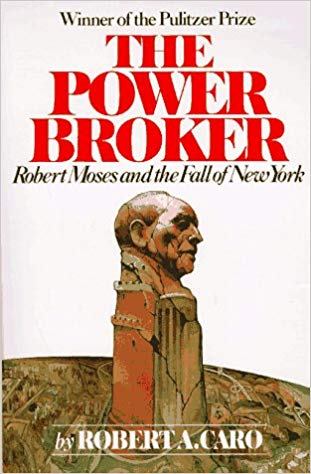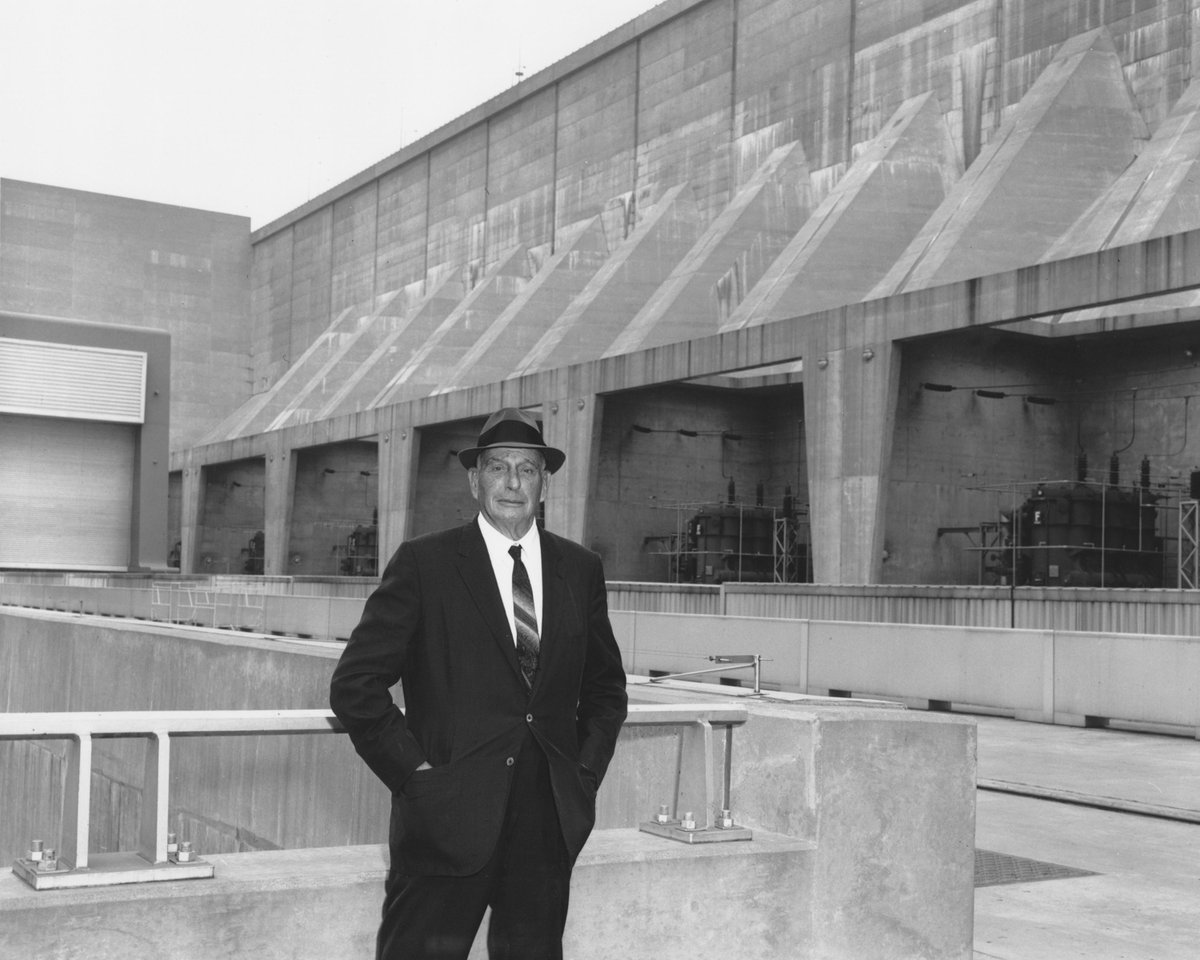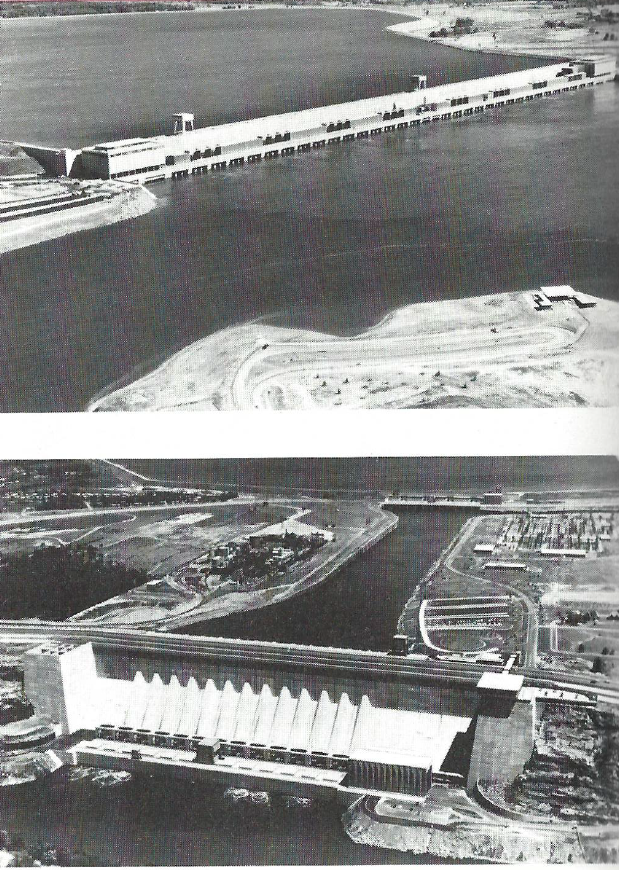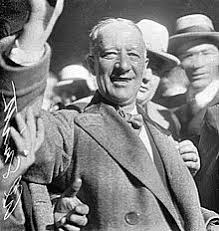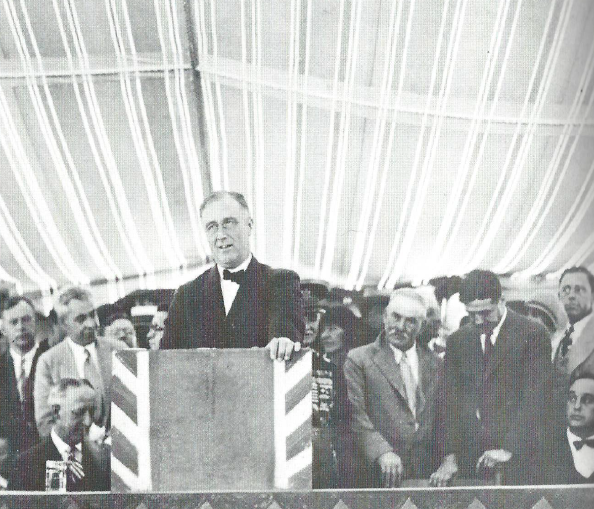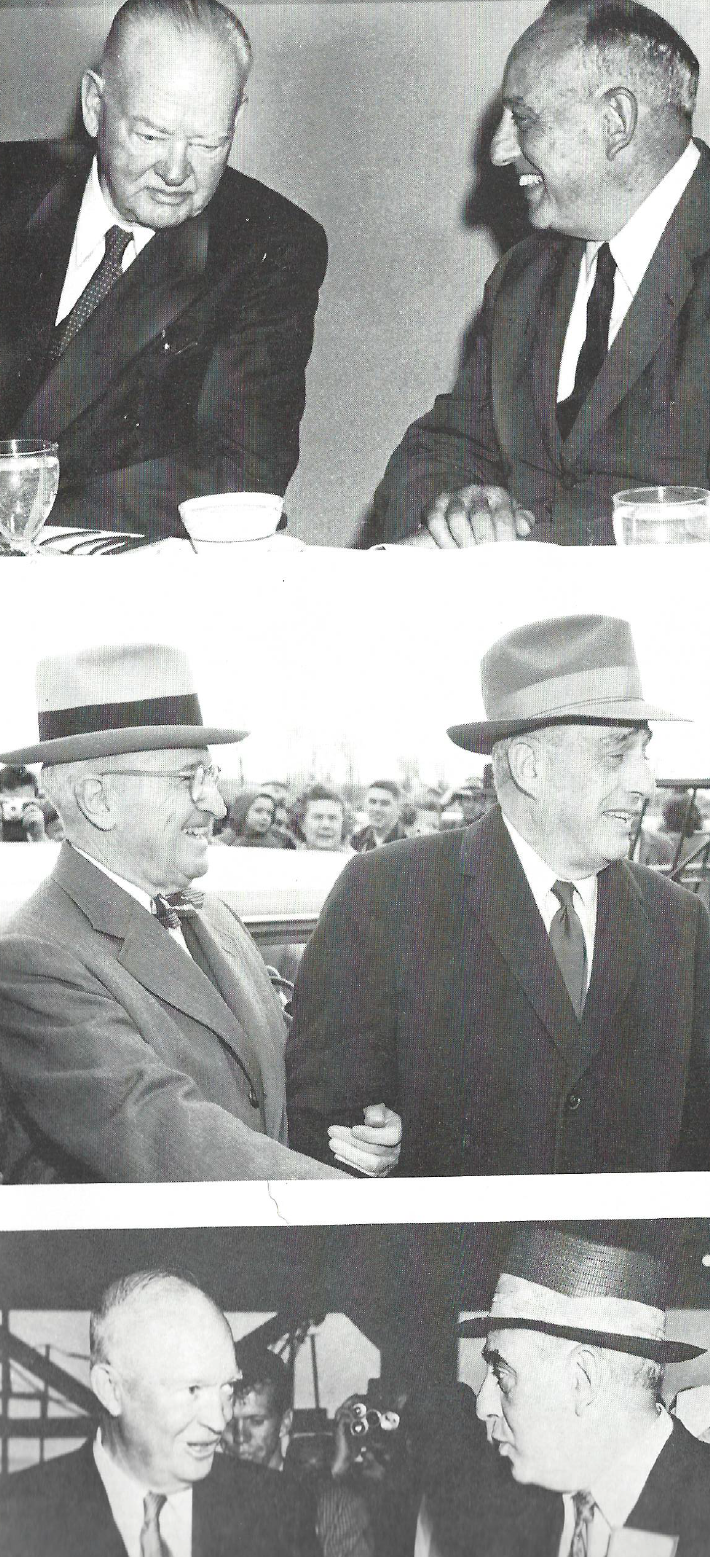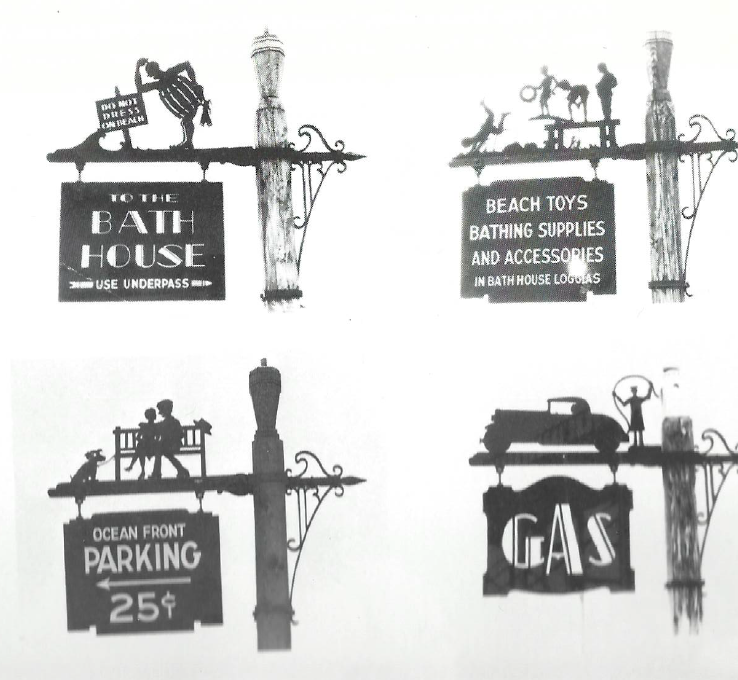Chapter 13 – Driving
Moses was now working towards a deadline. Governor Smith would only be in office until 1929 as he was planning to run for President, and even if another Democrat was elected, they would never have been as supportive as Smith. Moses’s only hope was to complete enough of the parks to allow the public to see them and support them. Construction work was therefore carried out at breakneck speed.
Moses spent his time rushing between New York City, Albany and Long Island, working long hours at a relentless pace. His energy was transmitted to the workers who found the projects exciting and enjoyable. People were inspired to work long hours and with great imagination. Tremendous efforts were put into the engineering and design of all the elements of the plans, with Jones Beach providing the focus. Work carried on through the winter months, despite inclement weather.
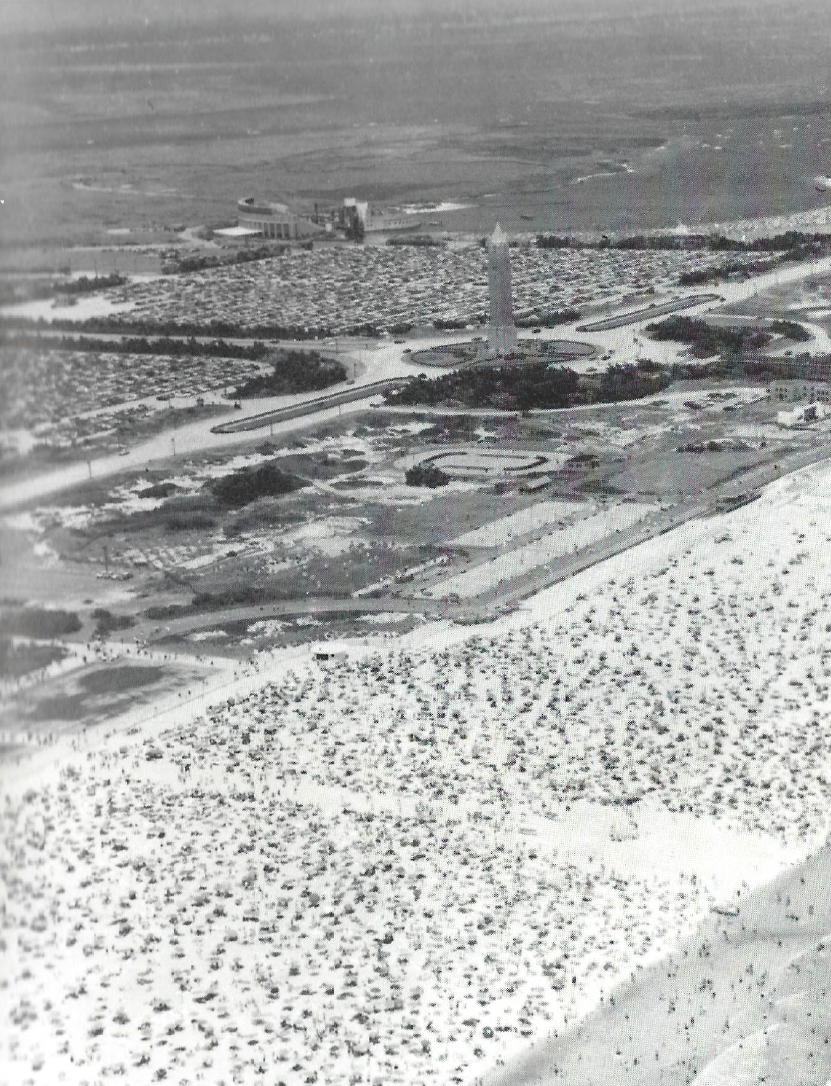
In early 1927, the contractor building the causeway ran out of money. Moses borrowed the $20,000 required from his mother, and the work proceeded. However, the east of Jones Beach was still not his (it was owned by Babylon County) and without it, his grand plan, linking Jones Beach to Fire Island, would be unfulfilled. Researchers found that Babylon County did not actually own the fishing rights to the bay, the main source of the locals’ income and so Moses swapped the fishing rights for the right to buy the east of Jones Beach. In a referendum, with every trick in the book pursued by Moses, the approval of the sale of the whole of Jones Beach passed by seven votes. By the end of 1928, all the land required for the causeway and the Southern Parkway was secured and the Water Board and Jones Beach parks were fully developed.

The New York press were making Robert Moses a hero. This had the practical benefit of securing the Long Island dream, although this was only a part of the state park system. There were upstate parks to be considered such as on the shore of Lake George, north of Albany. This land was owned by a group of wealthy men, who Moses persuaded to either donate, or sell at a reduced price, to the state. Once he had the parks, he built the roads to join them to the highways. The parks were becoming a great success. The upstate press lauded the upstate parks, and the New York City press praised the Long Island parks. However, none of the press expressed in full the magnitude of the parks and highways development that Moses had achieved, almost fully completing the plans first put forward in 1922.
Analysis & Key Takeaways
- Moses rented a boat and traveled around the New York area looking for something to carve out a major beach for New Yorkers, standing in the weeds on the side of his boat, he looked at a stretch of white sand beach and concluded this would be the beach;
- Having the ear of the leader is only valuable as long as that leader stays in power. You also need to build relationships with the future leadership: unfortunately those folks aren’t as easy to identify in advance therefore influence will waver according to your ability to predict who will be the next leader, decision-making with the powers;
- Moses lied about the cost of Jones Beach and then go back to the legislature for more money;
- Robert Moses also targeted the legislators who had a mortgage with the 1st National Bank to turn him to support Jones Beach
- Moses was worried that poor people (typically Black and Latino people) would come to Jones Beach by bus so he made the bridge clearances under 10 feet which would prevent buses from travelling to Jones Beach; legislation is easy to change, a bridge structure is not so much; such an elitist jerk!
- Moses was anti-democratic because what he saw at Tammany hall suggests that democracy has never really occurred yet (true democracy that is).
